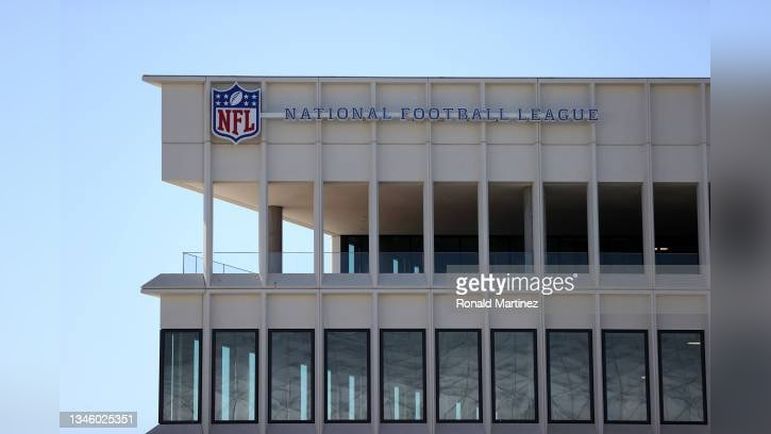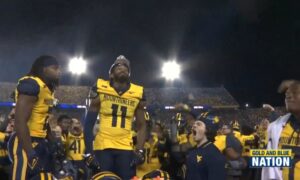The best football teams have a lot of moving parts that work in harmony to create a consistent winner. Here is a list with my personal ranking of which ones matter more and less. How would you grade them out?
NOTE: I couldn’t do these rankings at all when I thought of them as “bad” or “good” because a failing grade anywhere was enough to kill the entire season. In the end I had to ask: “Which would help more: a B grade player at spot #1 with a C at spot #2, or a grade C at #1 and B at #2?” Don’t fall into the same trap! That’s my primary takeaway from the exercise.
- Quarterback talent
- Team health
- Edge Rush talent
- Offensive Line talent
- Defensive Interior talent
- Secondary talent
- Running Back talent, assuming an average offensive line
- Off-Ball Linebackers
- Receiving Weapons
- The coaching staff’s ability to teach football and life skills
- Locker Room culture – that thing created by a combination of coaches, traditions, history, and veteran leadership
- Special Teams talent
- Pure dumb luck – bounces, blundered referee calls, etc. (health luck severed out to #2)
- Scheme
- Play calling
- Corporate culture and cap management
Other Observations
First, I want to reemphasize how easily an “F” in any category can destroy your team. That’s the #1 point.
Next, I didn’t go into this with the draft position priorities in mind, but they match surprisingly well… including the prime directive to pick talent over positions. After QB, the value of each position tilts instantly if one room is a B- and the other a C+. Picking by position makes no sense at all unless your team has somehow gone into the draft with a D or worse in one of the position groups.
That realization explains the Steelers’ free agent philosophy of filling holes with C and B talents, and then picking BPA prospects who are coachable and will fit the locker room. Smarts (to help with #10) and Hearts (to help with #11) have lower priorities than pure talent, but they are still extremely important because Ds and Fs are so terrifyingly bad.
“Coaching” doesn’t look like a big priority when seen this way, but it appears in so many spots (10, 11, 14, 15, and 16) that it really adds up. Especially when an F in any category ruins everything else. So yes: head coaches matter a lot. But it isn’t because of any particular skill or genius, so much as a combination of all five areas that adds up to make the Tomlins, Reids, and Belichicks so valuable. Looking a bit deeper, I ended up ranking the coach-centric roles based on the following priorities:
- Teaching came in highest because that is what every head coach in the world sings in harmonious chorus, with every retired player emphasizing how much the life skills mattered in addition to the on-field skills.
- Locker room culture comes next because that, once again, is what everyone on the inside tends to emphasize.
- Scheme beat play calling because it includes the ability to adjust for both injuries, and for being stronger in some areas and weaker in others. The ability to “paint the barn red,” if you will. AN ASIDE: Remember that true failures overwhelm everything else. It’s the differences between a nice, average C and a superior A that pale in importance compared to differences in talent at the player level.
- Play calling comes in so low because proper execution makes almost every call look good, and poor execution makes every call look bad. That’s why I still hold out hope for Matt Canada’s offense. The last two seasons have suffered so much from issues at the top of my list (particularly QB, health, and O-Line) that even a Bill Walsh offensive scheme would have looked awful. Thus, I go into the season with questions on my lips instead of damnation (or confidence).
- Finally, any football historian can point to a long line of fantastic teachers, inspirers, disciplinarians, schemers, and play callers who failed as head coaches because they had to deal with a failed corporate culture – and I would agree those coaches bear a certain amount of blame for that failure. Who has a better ability to plead, nag, teach, pester, and remind other decision makers like owners and GMs?
Finally, I came away almost shocked by how high team health ended up on the list, and how low I graded the “blind luck” factor. Luck fell neatly into the you can win with anything but an F, though better is always better. Health though… the difference between healthy stars, hampered stars, and missing stars is huge! Especially when the bug targets a particular position or room. Even the greatest team will crumble if the top two pass rushers all get hurt. Etc.
Thanks for joining the exercise. I’m really looking forward to hearing your thoughts on how to reorganize the list and why.








